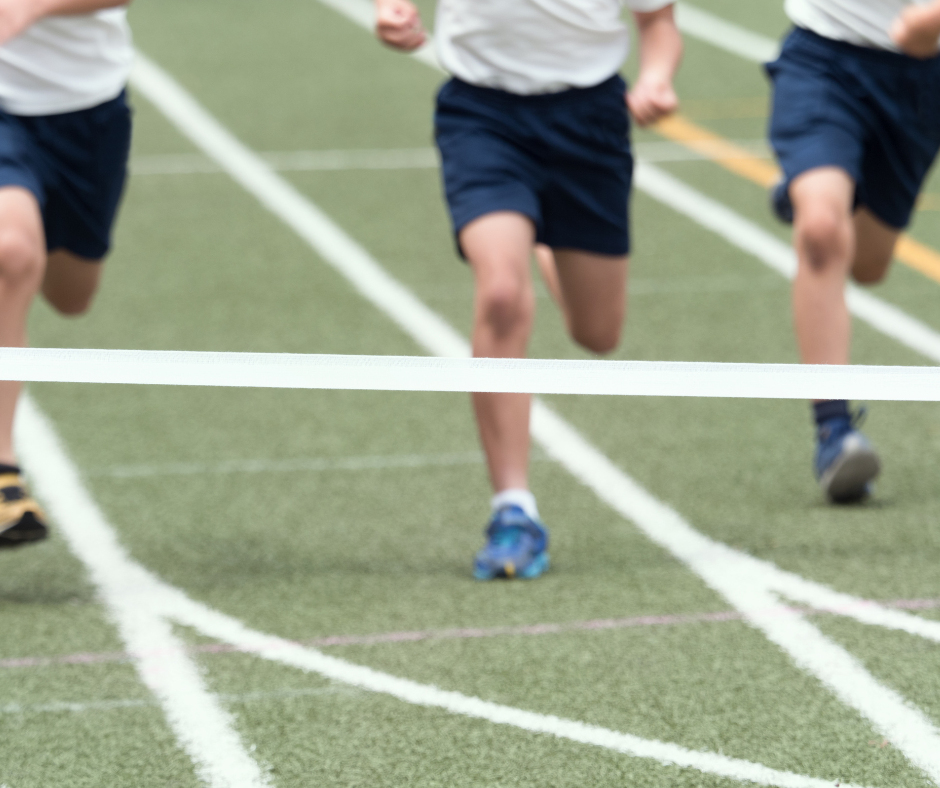School sports day can make children feel different ways. Some children look forward to the day because it’s fun and has exciting challenges. But others feel worried and stressed. This shows how parents can help their children with these feelings.
For most children, school sports day is a special day each year. They might get excited about new things to do, changing their hair color, or trying to finish a race. I remember good times like eating sausages, cakes, and painting faces. One of my special memory from being a mum at a sports day was watching Jack Day, an ex student from Karrinyup Primary School who has cerebral palsy, run a 100-meter race. The whole school cheered him on.
However, not all children like school sports day. My children had different experiences on sports day – one liked sports, and the other didn’t. Some find it scary to be in the spotlight and worry about coming last. They feel a lot of pressure to do well, even if they’re not good at sports. This kind of worry is a challenge.

Helping a child who doesn’t like sports day needs careful steps. Here are six parenting tips to make it easier and more positive:
1. Building Resilience in your Child
Tell your child that skipping sports day isn’t an option. Facing tough situations makes them strong and teaches important things. They don’t have to enjoy it, but trying is important.
2. Ask about their worries
Ask gently, “Are you worried about sports day?” Instead of ignoring their worries, show that you care. It’s okay if they feel sad, scared, or worried.
3. Find Out What’s Bothering Them
Dig deeper into their worries. If they’re worried about team activities like throwing a ball, ask “What if?” questions. For example, if they’re scared to drop the ball, ask “What if you drop it?” These questions help them see what’s really bothering, work out some strategies and help learn to keep things in perspective. Remind them that no-one expects them to be perfect!
4. Focus on Trying
Shift their attention from being perfect to trying their best. Ask what they’re good at, what they like. Help them see that they don’t have to be good at sports. But using their strengths can help them have a good sports day.
5. Imagine Doing Well
Teach them two tricks that sports stars do. The first is to stand like a superhero before the race, like Wonder Woman or Superman. This can help them feel ready and trick our brain. Practice this at home. Another trick is to close their eyes and imagine doing their best regularly in the lead up to their events.
6. Breathing and Movement
Teach them to breathe slowly when they’re worried. This calms them down. Moving their body also helps. Use the Breathe, Admit, Think (BAT) technique. Breathe slowly, admit how they feel, and think of something helpful. Click here to watch some breathing we teach children in our resilience workshops.
By showing children it’s okay to be worried and helping them solve problems, parents make them stronger. This helps them face hard things in life.
